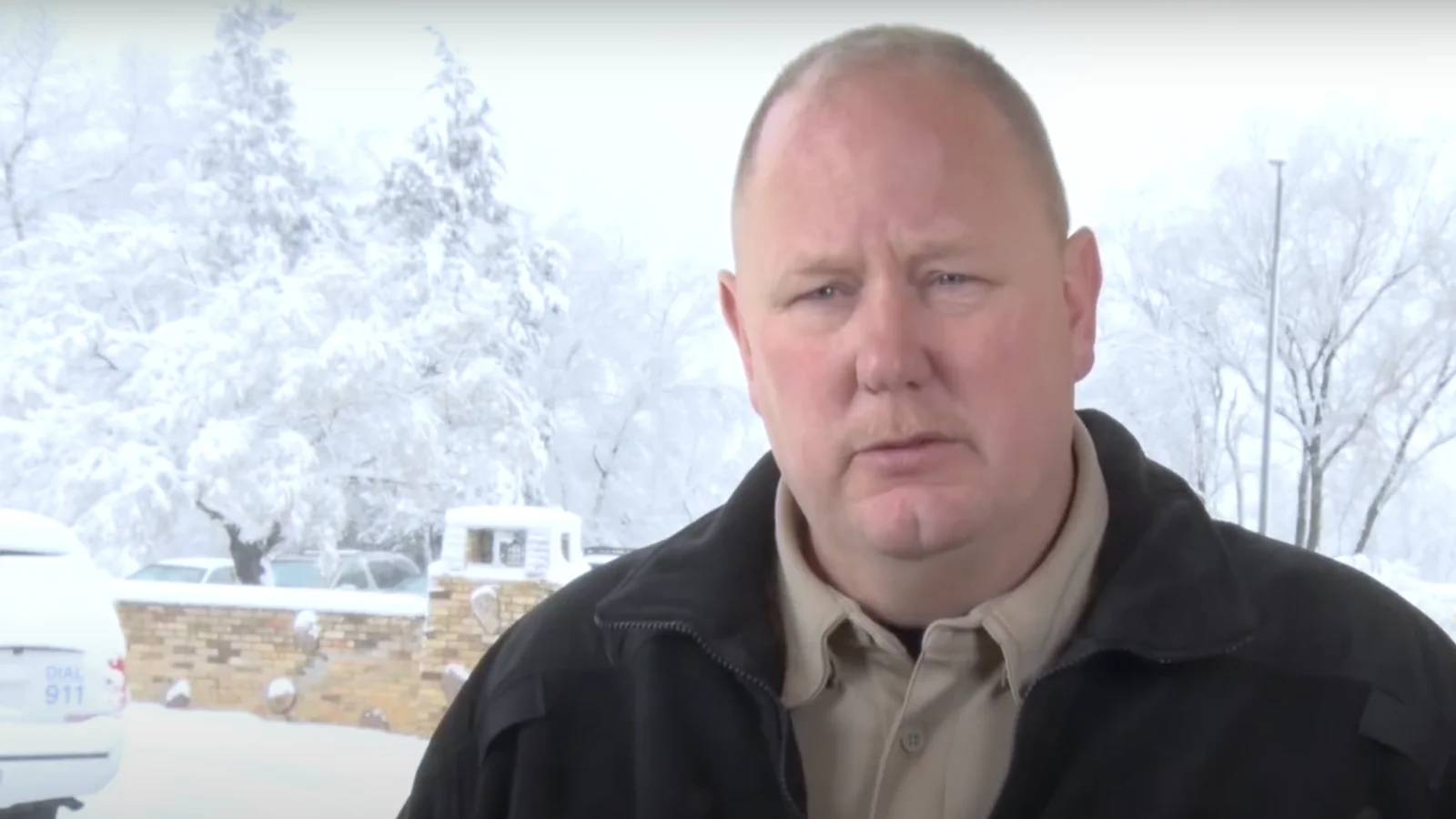Morton County Sheriff Kyle Kirchmeier | Youtube - Morton County
Morton County Sheriff Kyle Kirchmeier | Youtube - Morton County
On this day in 2016, law enforcement officials in North Dakota sent a strongly worded letter to President Barack Obama, expressing frustration over the federal government's failure to intervene in the escalating Dakota Access Pipeline (DAPL) protests.
Signed by 12 law enforcement leaders, the letter condemned the lack of federal support and effectively blamed Washington for failing to assist the state as protests intensified in Morton County.
“The federal government’s response to the events in our community has been appalling,” the letter stated. “It is abundantly clear they have no interest in helping the citizens of North Dakota.”
Law enforcement leaders argued that the absence of federal assistance was emboldening protesters, allowing them to engage in increasingly violent and disruptive activities.
“Each day this lack of response continues only serves to empower criminal protestors and support lawlessness in the name of radical political agendas,” the letter continued.
“Perhaps those individuals at the highest levels of our government who have repeatedly refused our requests for help should reread the oath of office they once took and recall who and what it is they swore to protect and defend,” it read.
By December 2016, the DAPL protests had been ongoing for several months, with demonstrators rallying against the pipeline’s construction. The protests resulted in clashes between law enforcement and activists, and the letter highlighted growing concerns about the safety of officers and local residents.
One of the most controversial developments was the doxxing of law enforcement officers involved in the response. In late 2016, protesters began to publicly release personal information of officers, including names, birth dates, and home addresses.
This exposed officers and their families to harassment and retaliation, with some officers even having their credit card information hacked.
Morton County Sheriff Kyle Kirchmeier, who oversaw law enforcement during the protests, described the aftermath of the doxxing as a “serious concern,” noting that officers had received threatening phone calls and uninvited visits to their homes.
“These acts constitute serious intimidation and harassment of officers and their families, and can cause concern for safety and mental distress,” Kirchmeier said.
In response, law enforcement agencies implemented training to help officers limit their exposure on social media and take steps to protect their personal information.
Bismarck Police Chief Dan Donlin called the release of officers’ personal information “unconscionable” and condemned the protesters for targeting not just law enforcement but also their families.
“This type of activity is not ‘peaceful’ by any means,” Donlin said.
The situation set a dangerous precedent, Kirchmeier warned, and he stated that individuals involved in doxxing could face criminal charges for actions such as terrorizing, harassment, and stalking under North Dakota state law.
In addition to the immediate security concerns, the aftermath of the protests left a lasting financial and legal impact.
The Standing Rock Sioux Tribe filed a lawsuit in D.C. federal court against the U.S. Army Corps of Engineers, asking the court for an order to shut down pipeline until it fully complies with the Clean Water Act, National Historic Preservation Act and the 1868 Treaty of Fort Laramie.
North Dakota Attorney General Drew Wrigley's office filed its motion to intervene on Nov. 7, arguing that closure of the 1,174-mile-long pipeline would cause “immediate” fiscal harm to the state in the form of lost taxes and fees.
The State argues that it has significant environmental and economic interests in the litigation.
“(A)lmost 60% of the total of all tax and fee revenue received by the state comes from oil and gas extraction and production,” the motion states. “These revenues support programs from which all state residents benefit including education, health care, water resource management, law enforcement, roadways, libraries, veterans’ services, public housing, parks and recreation, and other public services.”
In a federal lawsuit, the state argues that North Dakota should be compensated by the federal government to the tune of $38 million in damages resulting from law enforcement costs and property damage during the protests.





 Alerts Sign-up
Alerts Sign-up